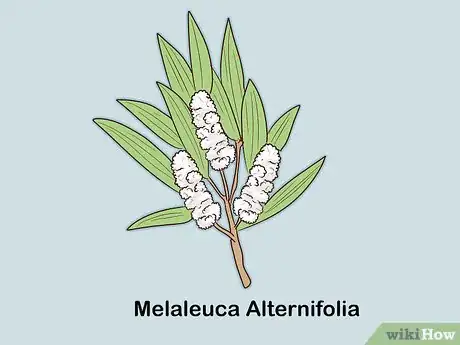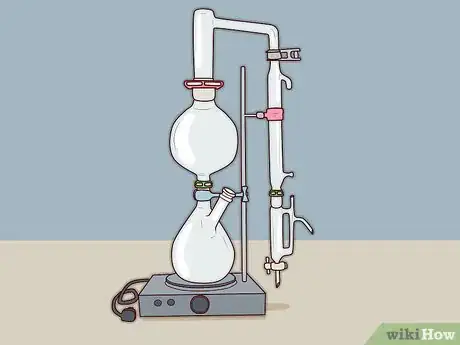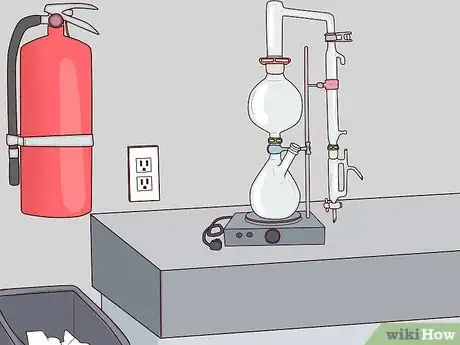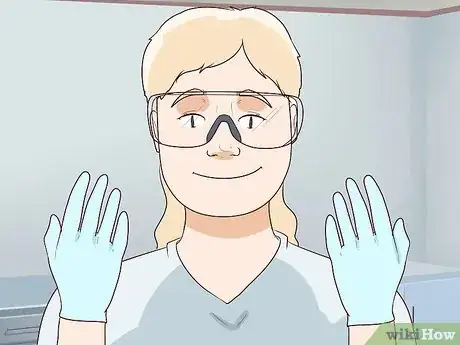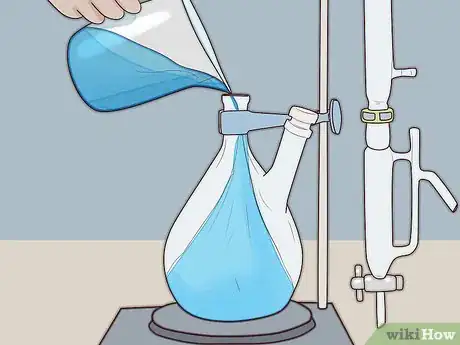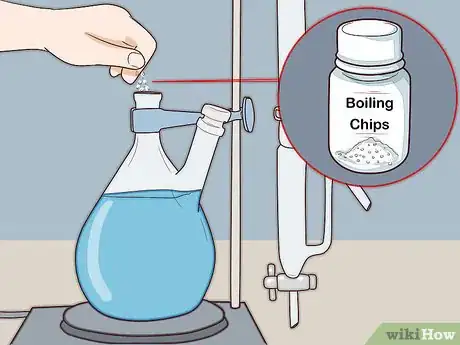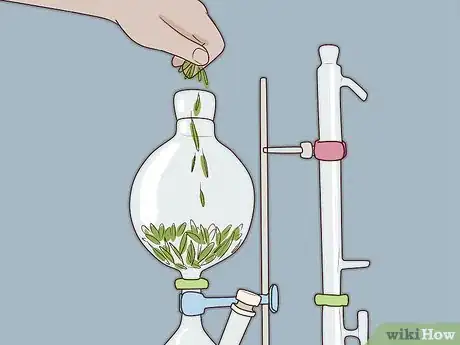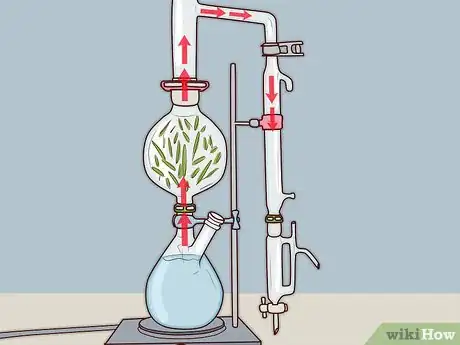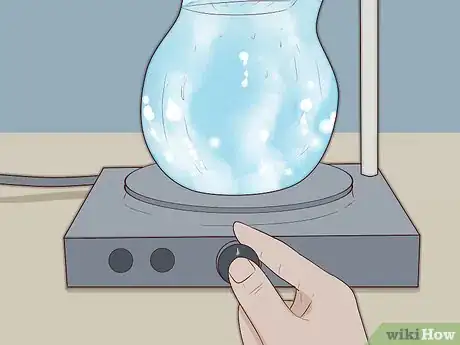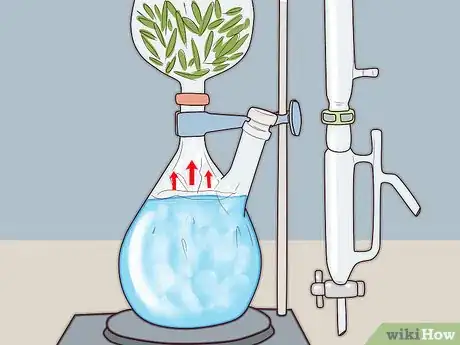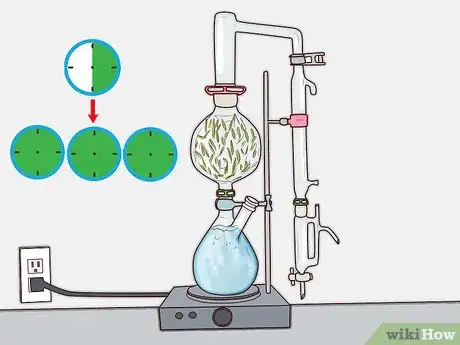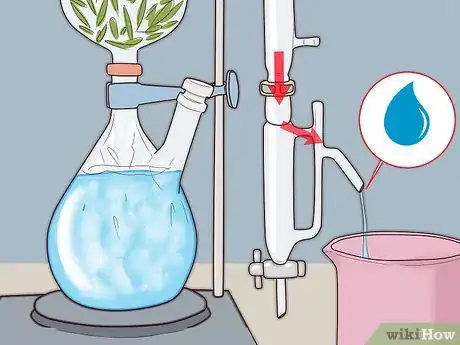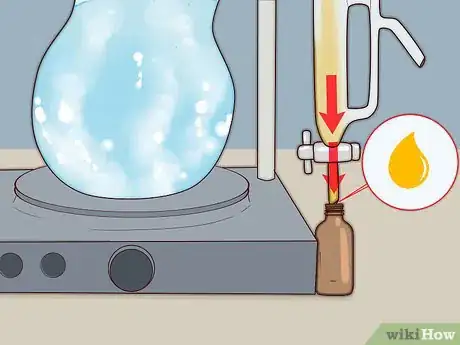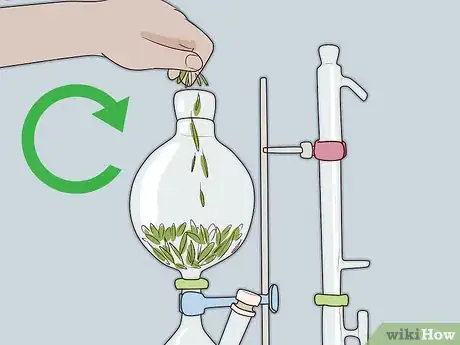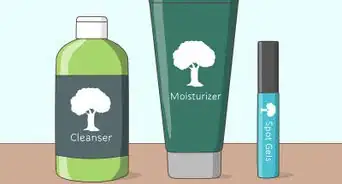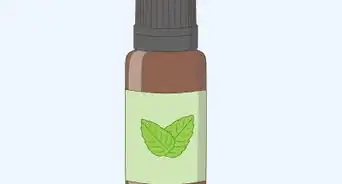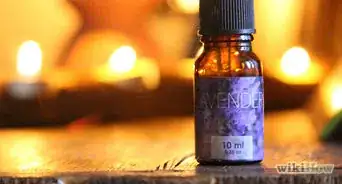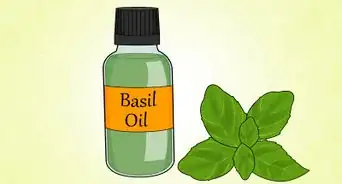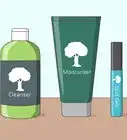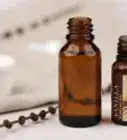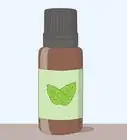This article was co-authored by Ritu Thakur, MA. Ritu Thakur is a healthcare consultant in Delhi, India, with over 10 years of experience in Ayurveda, Naturopathy, Yoga, and Holistic Care. She received her Bachelor Degree in Medicine (BAMS) in 2009 from BU University, Bhopal followed by her Master's in Health Care in 2011 from Apollo Institute of Health Care Management, Hyderabad.
There are 9 references cited in this article, which can be found at the bottom of the page.
This article has been viewed 123,408 times.
Tea tree oil, or Melaleuca alternifolia oil, is made from the steam distillation of leaves from the narrow-leaf tea tree plant. This tall shrub is part of the myrtle family and is native to Australia. It is well known for its essential oil, which is often used to treat fungal infections and other ailments. It can also be used for healing benefits, used for cleaning if mixed with water, and way more! It has been found to have mild antimicrobial properties, although it is still thought of as an alternative medical treatment. Be sure to take precautions when making tea tree oil, because some people can have skin irritation from contact with the leaves and the undiluted oils.[1]
Steps
-
1Obtain tea tree leaves.[2] This can be difficult, depending upon the region in which you live. Melaleuca alternifolia grows in USDA hardiness zones 8 through 11 and it is available for purchase. Other tropical areas may also be able to find the small tree at gardening centers or through magazines.[3]
- For people in cooler climates, it will be much harder to track down the raw materials needed to make this oil yourself. It is easier and less expensive to buy bottles of pre-made tea tree oil from reputable sources. If you buy tea tree leaves, make sure they are dried so that the oil remains inside the leaves.
-
2Buy or obtain a small distillation set. You can buy a small set from suppliers on Amazon.com or you can borrow one from a chemistry lab. Some home brew operations allow people to rent small stills for a short period of time.[4]
- Glass and stainless steel are the best choices for stills; however, these materials can be expensive.
Advertisement -
3Set up your still in your home. Make sure you have a flat surface, near an outlet, but in a safe area where children and pets cannot reach. Keep a fire extinguisher and wastebasket nearby.
-
4Wear gloves and safety goggles. Essential oils are strong and can be dangerous to touch or breathe in. The concentration of ingredients makes them more potent.[5]
-
5Pour water into your boiling container. It needs to be between 30 and 75 percent full during the entire process. Reconnect it to the distillation unit.[6]
-
6Add boiling chips or stones to the water. You can buy non-Teflon boiling stones at Internet market places when you are buying your distillation set. This keeps the water from bursting through the distillation set and ruining the process when it is boiling.[7]
-
7Place as many leaves as you can in the upper container of your distillation set. Do not cut the leaves, because that will initiate a loss of oil. The leaves should be packed fairly tightly, but leave enough room for steam to pass through.
- You may need to experiment with the amount of leaves you use to find out the right number for your distillation set.
-
8Start a low water flow into your condenser. This will allow the oil to flow into the tube.
-
9Turn the hot plate on, in order to start the steam distillation process.[8]
-
10Allow the plate to heat and the water to flow through the leaves. They will start to shrink in the container.
-
11Leave the heat on for 30 minutes to 3 hours. The majority of the oil should be removed and distributed to the container at the other end in the first 30 minutes. Turn the hot plate off when you are finished distilling.
-
12Pour the water off the oil in the container that caught the essential oil. They should separate fairly easily.[9]
-
13Pour the tea tree oil into a dark tinted dropper bottle.
-
14Replace the leaves and repeat the process to obtain more essential oil.
Warnings
- Beware tea tree oil can cause contact dermatitis, a rash on the skin. It has also been known to be fatal when ingested by dogs and cats.⧼thumbs_response⧽
Things You'll Need
- Distillation set
- Tea tree leaves
- Water
- Boiling chips
- Tinted dropper bottle
- Electrical outlet
- Fire extinguisher
- Safety goggles
- Gloves
References
- ↑ https://www.webmd.com/a-to-z-guides/supplement-guide-tea-tree-oil
- ↑ Ritu Thakur, MA. Natural Health Care Professional. Expert Interview. 13 December 2021.
- ↑ https://www.hobbyfarms.com/grow-your-own-tea-tree/
- ↑ http://trueblueorganics.co.nz/tea-tree-oil-distillation-process/
- ↑ http://info.achs.edu/blog/aromatherapy-essential-oil-dangers-and-safety
- ↑ https://teatree.org.au/teatree_about_distillation.php
- ↑ http://www.wiredchemist.com/chemistry/instructional/laboratory-tutorials/distillation
- ↑ https://orgchemboulder.com/Technique/Procedures/Distillation/Setup.shtml
- ↑ https://www.clawhammersupply.com/blogs/moonshine-still-blog/116582532-how-to-make-essential-oils
